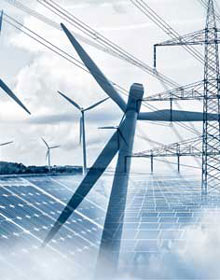
On June 28, 2024, South Africa's Finance Minister Enoch Godongwana officially announced the implementation of a new tax policy that imposes a 10% general import duty on photovoltaic cells assembled in modules or made up into panels. This significant move marks a pivotal moment in the country's energy and economic policy, reflecting broader trends and challenges in the global renewable energy sector.
The decision to impose this import duty has not come out of the blue; it aligns with South Africa's broader strategic goals of fostering local industries and reducing dependency on foreign imports. By making imported photovoltaic (PV) cells more expensive, the government aims to encourage local production and assembly of solar panels. This could potentially stimulate job creation and technology development within South Africa, fostering a more self-reliant and robust renewable energy sector. Additionally, it may lead to increased investments in local manufacturing capabilities, driving down costs over time and making solar power more accessible to the average South African consumer.
However, this policy does not come without its challenges and criticisms. Opponents argue that the immediate effect of the import duty could be an increase in the cost of solar energy projects, potentially slowing down the adoption rate of solar power in the short term. South Africa, with its abundant sunshine, has immense potential for solar energy, and making solar panels more expensive could be counterproductive at a time when the country is striving to transition away from coal and other fossil fuels. Critics also point out that the local solar industry may not yet be capable of meeting the demand, potentially leading to supply shortages and project delays.
In the broader context, this move by South Africa mirrors actions taken by other countries that have sought to protect and nurture their own renewable energy sectors. For instance, the United States and the European Union have both implemented tariffs on imported solar products in a bid to support domestic manufacturers. These policies have had mixed results, sometimes leading to trade disputes and market uncertainties but also driving investment in local production capabilities.
Ultimately, the success of South Africa's new import duty will depend on a range of factors, including the responsiveness of local manufacturers, the ability of the government to provide support and incentives for domestic production, and the overall demand for solar energy in the coming years. If managed well, this policy could indeed bolster South Africa's renewable energy sector, contributing to both economic growth and environmental sustainability. However, it will require careful balancing to ensure that the immediate costs do not outweigh the long-term benefits.
As South Africa navigates this new policy landscape, stakeholders across the industry will be watching closely to see how the market adjusts and evolves. The hope is that, with the right support and strategic planning, South Africa can achieve its dual goals of economic development and a sustainable energy future.


Leave a Comment